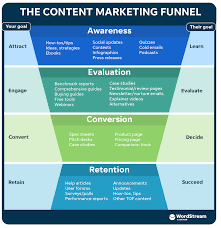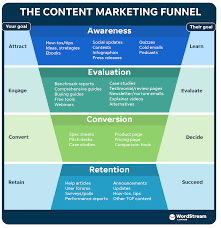Mastering the Art of Targeting in Digital Marketing: Strategies for Success
The Importance of Targeting in Digital Marketing
In the world of digital marketing, targeting is a crucial strategy that can make or break a campaign’s success. Targeting involves identifying and reaching out to specific segments of the audience who are most likely to be interested in your products or services. By focusing your efforts on these individuals, you can increase the effectiveness of your marketing efforts and drive better results.
Why Targeting Matters
Targeting allows you to tailor your messages and content to resonate with the right audience. By understanding their needs, preferences, and behaviours, you can create personalised campaigns that are more likely to capture their attention and generate engagement. This not only improves the overall customer experience but also increases the likelihood of conversion.
Types of Targeting
There are various ways to target your audience in digital marketing:
- Demographic Targeting: This involves segmenting your audience based on demographic factors such as age, gender, income, education, etc.
- Behavioural Targeting: This targets users based on their online behaviour, such as browsing history, search queries, and interactions with websites.
- Geographic Targeting: This focuses on reaching users in specific locations or regions.
- Psychographic Targeting: This targets users based on their interests, values, attitudes, and lifestyle.
The Benefits of Effective Targeting
Effective targeting offers several benefits for digital marketers:
- Higher ROI: By reaching out to a more relevant audience, you can improve conversion rates and maximise return on investment.
- Better Engagement: Tailored messages resonate better with audiences, leading to increased engagement levels.
- Improved Brand Loyalty: When customers feel understood and valued, they are more likely to remain loyal to your brand.
- Data-Driven Insights: Targeting allows you to gather valuable data about your audience’s preferences and behaviours, which can inform future marketing strategies.
In Conclusion
In today’s competitive digital landscape, targeting is essential for successful marketing campaigns. By understanding your audience and delivering relevant content tailored to their needs, you can drive better results and build stronger relationships with customers. Embrace targeting as a core strategy in your digital marketing efforts to stay ahead of the competition and achieve long-term success.
9 Expert Tips for Precision Targeting in Digital Marketing Campaigns
- Identify your target audience and create detailed buyer personas.
- Utilise data analytics to understand your audience’s behaviour and preferences.
- Tailor your content to resonate with the specific needs and interests of your target audience.
- Use targeted keywords in SEO strategies to attract relevant traffic to your website.
- Segment your email marketing lists based on demographics, interests, or past interactions.
- Personalise marketing messages to make them more engaging and relevant to individual users.
- Utilise social media targeting options to reach specific demographics or interests.
- Consider using geotargeting to deliver location-specific ads or promotions.
- Regularly monitor and analyse the performance of your targeted campaigns to make data-driven adjustments.
Identify your target audience and create detailed buyer personas.
To enhance the effectiveness of your digital marketing efforts, it is essential to identify your target audience and develop detailed buyer personas. By creating in-depth profiles that represent your ideal customers, including their demographics, behaviours, preferences, and pain points, you can tailor your marketing strategies to better resonate with them. Understanding the needs and motivations of your target audience through buyer personas allows you to craft personalised messages and content that are more likely to capture their attention and drive engagement. This targeted approach not only improves the relevance of your campaigns but also increases the likelihood of converting leads into loyal customers.
Utilise data analytics to understand your audience’s behaviour and preferences.
To enhance your digital marketing efforts, it is essential to utilise data analytics to gain insights into your audience’s behaviour and preferences. By analysing data such as website interactions, purchase history, and social media engagement, you can better understand what resonates with your target audience. This information allows you to tailor your marketing strategies to meet their specific needs and interests effectively. Data analytics empowers you to make informed decisions, optimise campaigns for better results, and ultimately build stronger connections with your audience.
Tailor your content to resonate with the specific needs and interests of your target audience.
To enhance the effectiveness of your digital marketing efforts, it is crucial to tailor your content in a way that resonates with the specific needs and interests of your target audience. By understanding what motivates and engages your audience, you can create content that speaks directly to their preferences, challenges, and aspirations. This personalised approach not only captures their attention but also fosters a deeper connection with them, ultimately leading to increased engagement, brand loyalty, and conversions.
Use targeted keywords in SEO strategies to attract relevant traffic to your website.
Utilising targeted keywords in your SEO strategies is a fundamental tactic to draw relevant traffic to your website. By incorporating specific keywords that align with your business offerings and resonate with your target audience, you can enhance your website’s visibility in search engine results. This approach not only increases the likelihood of attracting users who are actively seeking products or services like yours but also improves the overall user experience by providing them with content that matches their search intent. Effective keyword targeting in SEO can significantly boost organic traffic, drive quality leads, and ultimately contribute to the success of your digital marketing efforts.
Segment your email marketing lists based on demographics, interests, or past interactions.
To enhance the effectiveness of your email marketing campaigns, it is essential to segment your email lists based on demographics, interests, or past interactions. By categorising your subscribers into specific groups, you can deliver more personalised and relevant content that resonates with their preferences. This targeted approach increases engagement levels and improves the chances of conversion as you are addressing the unique needs of each segment. Segmenting your email lists allows you to tailor your messages effectively, leading to better results and a stronger connection with your audience.
Personalise marketing messages to make them more engaging and relevant to individual users.
Personalising marketing messages is a powerful strategy in digital marketing that can significantly enhance engagement and relevance for individual users. By tailoring content to match the specific needs, preferences, and behaviours of each user, businesses can create a more personalised and meaningful experience. This approach not only captures the attention of users but also increases the likelihood of driving conversions and building stronger relationships with customers. Personalisation demonstrates a deep understanding of the audience, showing that their individual needs are valued, ultimately leading to more effective marketing campaigns and better overall results.
Utilise social media targeting options to reach specific demographics or interests.
To enhance the effectiveness of your digital marketing campaigns, it is advisable to leverage social media targeting options to reach specific demographics or interests. Social media platforms offer robust targeting tools that allow you to pinpoint and engage with audiences based on various factors such as age, gender, location, interests, and online behaviours. By utilising these targeting options effectively, you can tailor your content to resonate with the right audience segments, increase engagement levels, and drive conversions. This strategic approach not only maximises the impact of your marketing efforts but also helps you build meaningful connections with potential customers who are most likely to be interested in your products or services.
Consider using geotargeting to deliver location-specific ads or promotions.
Consider incorporating geotargeting into your digital marketing strategy to deliver location-specific ads or promotions. By leveraging geotargeting, you can tailor your marketing efforts to reach audiences in specific locations, increasing the relevance and effectiveness of your campaigns. This approach allows you to deliver personalised messages that resonate with users based on their geographic location, driving higher engagement and conversion rates. Geotargeting enables you to connect with local audiences and create a more targeted and impactful marketing strategy that aligns with the unique needs and preferences of different regions.
Regularly monitor and analyse the performance of your targeted campaigns to make data-driven adjustments.
Regularly monitoring and analysing the performance of your targeted campaigns is a crucial tip in digital marketing. By tracking key metrics and analysing data, you can gain valuable insights into the effectiveness of your campaigns and audience engagement. This data-driven approach allows you to identify what is working well and what needs improvement, enabling you to make informed adjustments to optimise your targeting strategies for better results. Continuous monitoring and analysis help you stay agile in the ever-changing digital landscape, ensuring that your campaigns remain relevant and impactful in reaching your target audience effectively.












